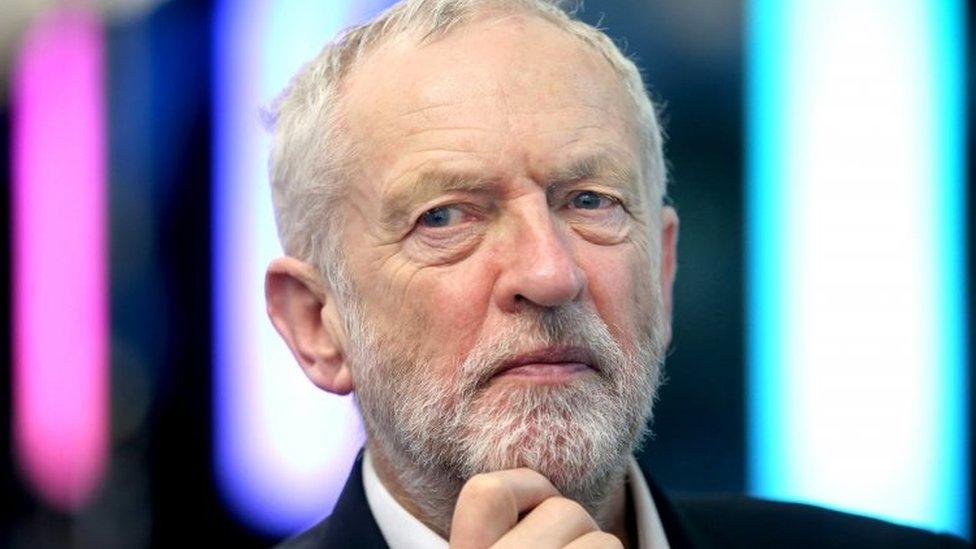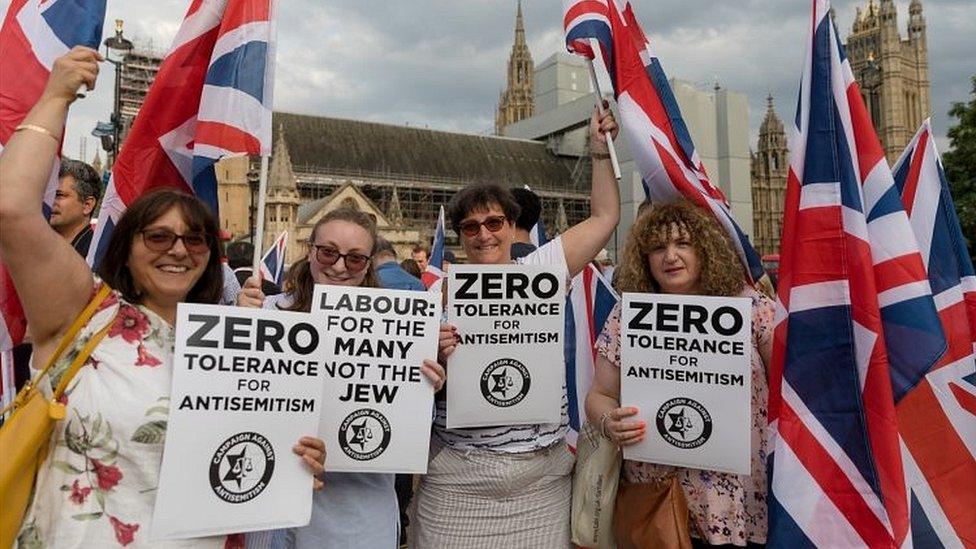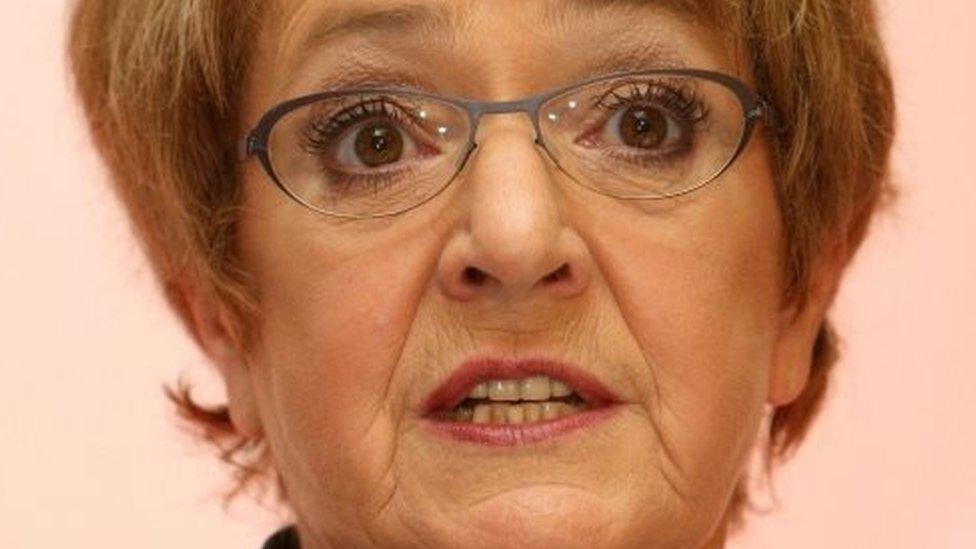What's the anti-Semitism row doing to Labour?
- Published

Labour's leadership is beset by claims of anti-Semitism among members and accusations it hasn't done enough to stop the problem. What is all this doing to the party and its standing?
For more than two years, the Labour Party has been mired in a row about the extent of anti-Semitism within its ranks.
There have been suspensions, inquiries, bitter internal rows and promises to tackle the issue from the top of the party. But the subject is as toxic as ever.
Earlier this month, the UK's three main Jewish newspapers all carried the same front page under the headline "United we stand", claiming Jeremy Corbyn posed an "existential threat" to Jewish life in Britain.
Two Labour MPs with Jewish family backgrounds, Margaret Hodge and Ian Austin, face disciplinary inquiries after separately berating the party leadership over its policy for dealing with anti-Semitism - in particular, the decision of Labour's ruling National Executive Committee not to adopt in full the list of anti-Semitic examples as defined by the International Holocaust Remembrance Alliance (IHRA).
The leadership insists it has adopted the definitions of anti-Semitism in a way that also allows people to criticise the actions of Israel.
But following strong complaints by a number of Labour figures, the party's MPs will now get a chance to show their support for the full IHRA definition when they return to Westminster in September.
The latest evidence of Labour's failure to close this row down is a recording of Peter Willsman, a long-standing ally of Mr Corbyn on the NEC, berating some members of the Jewish community for being "Trump fanatics" and questioning where the evidence is of widespread anti-Semitism within the party. Mr Willsman apologised before this recording came to light.

If you dip into the raucous maelstrom that characterises conversation between some Labour supporters online, you will find supporters of Mr Willsman. There are activists within Labour who see the focus on anti-Semitism within the party as a means of smearing Mr Corbyn by right-wing Blairites, supporters of Israel and critics within the mainstream media (including the BBC).
There are many who strongly argue anti-Semitism in the Labour Party is not widespread. But for other supporters of Mr Corbyn, Mr Willsman's remarks were beyond the pale. The Labour-supporting musician Billy Bragg said Mr Willsman could not deal with the problem of anti-Semitism within the party if he didn't think it existed.
Several high-profile Corbyn supporters took to Twitter to say Mr Willsman should withdraw from the NEC elections, which he is contesting on Momentum's slate. One of those, the journalist Owen Jones, said anti-Semitism did exist on the fringe of the left but the issue was also being used to smear Mr Corbyn. Both statements, he insisted, could be true.

Margaret Hodge criticised Jeremy Corbyn's handling of the issue
In its response to Mr Willsman's outburst, Labour said it was committed to tackling and eradicating anti-Semitism in all its forms. But the fact is, after two years, relations between Britain's Jewish communities and the party are at a historical low.
Prominent Jewish voices inside and outside Labour are furious that the leadership seems to claim a clearer idea about what constitutes anti-Semitism than they do.
Neither the actions or words of Jeremy Corbyn have managed to calm this argument down.
And while the government struggles to keep its plan for Brexit on the road, Labour appears to be stuck in a cul-de-sac of blame and recrimination on how it's tackling anti-Semitism.